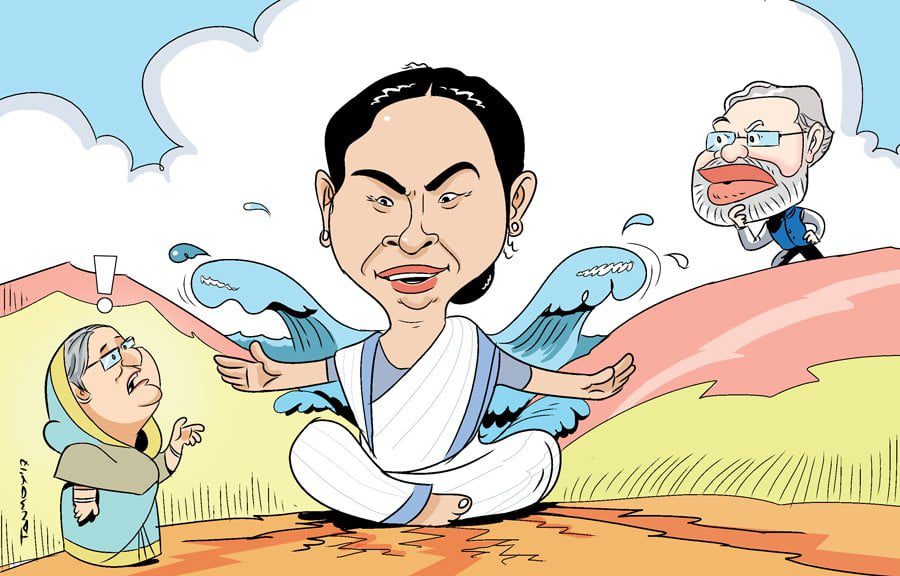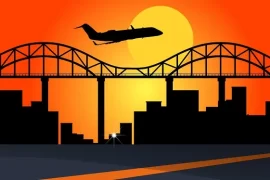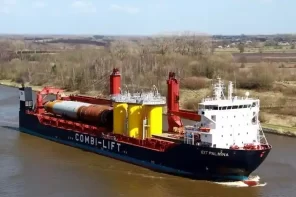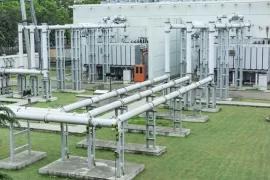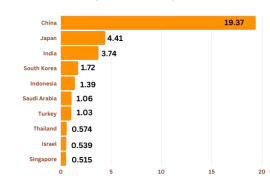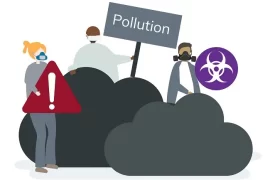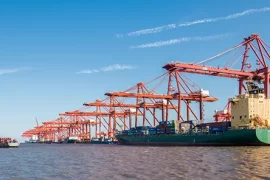Teesta and India-Bangladesh friendship: Will it hold water?
- Prime Minister Sheikh Hasina’s official visit to India during April 7-10, 2017 has generated mixed reactions. In a press conference, PM Hasina termed the tour ‘totally successful’. The trip was marked by display of friendship and warmth. PM Modi greeted Hasina at the airport, breaking the protocol. India named a road after Bangabandhu Sheikh Mujibur Rahman. Bangladeshi PM paid homage to Indian soldiers martyred in the 1971 Bangladesh liberation war.
- 24 MoUsand 11 Agreements were signed between the two countries. Areas covered by the agreements or MoUs include power & energy, aerospace, nuclear energy, atomic energy, nuclear plant projects, information technology & electronics, cyber security, and so on. India has also offered USD 4.5 bn line of credit to Bangladesh, which will be used in construction of ports, roads, and IT.
- The two countries have signed three MoUs in the defense sector. The first one is about transfer of military supplies and technology from India to Bangladesh. MoUs were also signed on cooperation between Defence Services Staff College, Wellington, Tamil Nadu and the Defence Services Command and Staff College, Mirpur, Dhaka and that between National Defence College, New Delhi and its counterpart in Dhaka. An ‘umbrella agreement’ on defence is being considered. India offered a USD 500m line of credit for defense purchase equipment to Dhaka, to be repaid in 20 years with 1% interest rate. Indian army chief Bipin Rawat is slated to visit Dhaka during April 27-30, 2017.
- After transit, the defense pact has now become one of India’s biggest negotiation goals, while for Bangladesh, the focus remains Teesta. PM Modi mentioned that ‘only my government and your government… can and will find an early solution to Teesta water-sharing issue’. Indian water minister Uma Bharti added the assurance that water will form the basis of good India-Bangladesh relations. Sheikh Rokon, a noted Bangladeshi river expert and activist and Secretary General of Riverine People observed that “Modi govt. is still ‘reiterating’ their old commitment to ‘work’ with stakeholders on the conclusion of the Teesta agreement.”India has pointed at Mamata Banerjee, CM of West Bengal, as the resister of the deal. Signing of the deal could allow Mamata to accuse the Central government of harming interests of West Bengal and score political points, while an ascendant BJP would suffer setbacks in West Bengal, as argues Suvojit Bagchi. Rokon notes that “the stakeholder, that is Mamata Banarjee has proposed an ‘alternative’. [Thus] Teesta deal has really moved backward compared to September 2011, [when] the agreement was ready for signing. In her 2015 Dhaka visit Mamata assured that they were working for a solution.” During Prime Minister’s India trip, Mamata offered water sharing in Torsa [Dudhkumar in Bangladesh], Jaldhaka [Dharla in Bangladesh], and so on as a substitute of Teesta, which Bangladesh turned down.Rokon noted that this proposal begs the question, as Torsa and Jaldhaka are also Indo-Bangladesh common rivers and should not be brought up in discussing sharing of Teesta water. India’s river-linking project would draw water from Brahmaputra basin to Bihar.
- A debate has cropped up about water availability in Teesta. Indian media has cited a report by West Bengal government that Teesta’s water is 6% of that needed by farmers across border for agriculture. Mamata argues that 60% of the water has been taken away by further upstream Sikkim Rokon raised the question why the West Bengal government has not made the report of Rudra Commission prepared in 2011. Rokon said that it is evident even on the basis of Google Earth image that “water is being diverted to Mahananda power project [as well as]Mechi and DahukRiver from Gajaldoba barrage. Teesta water is being used not only for irrigation projects, but also for hydropower generation in the Mahananda River.” Rokon told FAIR that the proposed Teesta deal “is not to ensure ‘enough’ water for irrigation projects in both countries, rather it is to ensure the just rights of both of the co-riparian countries. Getting equitable share, whatever the quantity, is the right of Bangladesh. An agreement is necessary to establish and ensure Bangladesh’s riparian rights.” He proposed formation of a India-Bangladesh joint technical committee for measurement of quantity of water. Bangladesh should negotiate with Delhi instead of having to bother about Delhi-Calcutta internal political dynamics. Rokon stressed that Bangladesh should have clear and updated data on entire Teesta for effective negotiation.
- Bangladesh and India moved one step closer towards implementation of the Rampal project. Loan deal was signed between EXIM Bank, India and Bangladesh India Friendship Power Company Limited (BIFPCL) for financing the 1,320 MW Indo-Bangla joint venture Rampal Coal Power Project.UNESCO has expressed concern over how the project could affect the Sundarbans, the world’s largest mangrove forest. In an interview, Indian energy & power expert Soumya Dutta held that the ash, fly ash, acidic oxide, and so on from the power plant could drive Sundarbans over a tipping point and it may then be impossible to save the forest.
- The visit was marked by a slew of energy sector deals and India’s private sector companies are driving the cooperation forward. Reliance Power ratified contract to build a 750 MW LNG-based combined-cycle power plant in Meghnaghat, Narayanganj and a FSRU Terminal at Maheshkhali, Cox’s Bazar.This is a USD 1.3 billion investment, the largest FDI deal for Bangladesh so far. Petro Bangla sought US$1.4 billion from the GOB annually as it is going to purchase 390 MM CFD LNG daily from Reliance Power. Adani Power signed a USD 2 bn agreement to build transmission lines to supply power from two 660 MW plants to be set up in Jharkhand, India. NTPC India has signed a deal with its counterpart BPDB for power supply from Nepal to Bangladesh. Aside from the deals during the PM’s trip, the ABB India – the Indian wing of the global industrial technology company – has announced that it has won a USD 27.5 mn contract from Power Grid Corporation of Bangladesh (PGCB) for setting up two new sub-stations in Kachua & Kalurghatand upgrading two existing ones in Comilla and Modhunaghat which will add 535 MW transmission capacity .
- Prime Minister Sheikh Hasina, during her meeting with her Indian counterpart Modi, raised the issue of trade deficit and anti-dumping duties imposed by India on jute goods from Bangladesh. 30% of Bangladeshi jute export goes to India and in 2015-16, Bangladeshi export of jute and jute products to India grew 150%. Since the anti-dumping duty imposition, the export has slumped. India’s imposition of countervailing duty on Bangladeshi RMG export dents the trade volume [12]. Apparently India didn’t respond positively on the request. Aside from these, a major non-tariff barrier hampering Bangladeshi export to India is non-acceptance of certification by Bangladesh Standards Testing Institution (BSTI). Federation of Indian Chambers of Commerce and Industry (FICCI) and Federation of Bangladesh Chambers of Commerce and Industry (FBCCI) held a meeting on April 8, 2017,In their outcome document, the two chambers mentioned six points. The two organizations decided to work jointly on tariff and non-tariff barriers on Indo-Bangla trade. They also would form a task force to promote Indian investment in Bangladesh in the areas: infrastructure, education, healthcare, power and tourism. Connectivity, knowledge sharing, and skills development also feature in their agenda.
- One week before PM Hasina’s visit, Indian Home Minister Rajnath Singh reaffirmed India’s commitment to completely shut off the border with Bangladesh. An Indian analyst makes the stupendous claim of presence of 15m Bangladeshi illegal immigrants in India [13]. India, a lower-middle income country, has its own unemployment problem, driving Indian nationals to hunt for jobs abroad through legal and illegal means. India has around 500,000 illegal immigrants in US, 45,000 in UAE, and around 2,700 in UK. In 2014, Saudi Arabia offered amnesty to illegal Indian immigrants and around 141,000 Indians – mostly from Uttar Pradesh – returned home.

